Global Learning, Digital Global Citizenship and the SDGs – 8 Learning Opportunities for SEND Settings
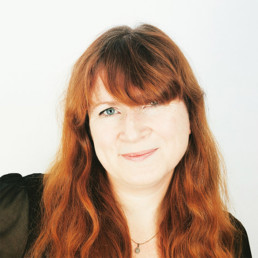
Written by Dr Harriet Marshall
Head of Educational Research at Lyfta and has been a global education advocate for over 20 years, as a teacher, researcher, consultant and education project leader.
The challenge of bringing the outside world into an indoor learning space has had a lot of attention recently as a result of ‘lockdown-learning’ requirements. However, many in the field of global learning have been actively working on this pedagogical task for decades in a variety of ways. Recently, practice has been ramped up a gear, thanks to youth mobilisation to stop climate change, David Attenborough’s chart-busting ‘Our Planet’, the UN’s 17 Sustainable Development Goals (SDGs), and a new range of digital global citizenship education opportunities.
Global citizenship education, sustainable development education or human rights education can be an empowering, enriching, and transformative educational experience. The extent to which UN states also believe this work crucial is manifested in Target 4.7 of the SDGs:
By 2030 ensure all learners acquire knowledge and skills needed to promote sustainable development, including among others through education for sustainable development and sustainable lifestyles, human rights, gender equality, promotion of a culture of peace and non-violence, global citizenship, and appreciation of cultural diversity and of culture’s contribution to sustainable development. (Source: sdgs.un.org)
The 2030 Agenda for Sustainable Development, the resolution adopting the SDGs, pledged to ‘leave no one behind’ and recognises the dignity of all and equality among all. The plan therefore rightly highlights an opportunity to consider complex global issues relating to equality, diversity and inclusion in all sorts of settings – including schools.
There are many ways in which schools are opting to bring in global learning – from school awards (such as UNICEF’s Rights Respecting Schools) to working with regional Development Education Centres to engaging in programmes like the British Council’s Connecting Classrooms. Some teachers are familiar with publications such as Oxfam’s Guides for Teachers on the ‘Sustainable Development Goals’ or ‘Global Citizenship Education’ and so use these to identify a curricular and pedagogic strategy right for the needs of their students. Research hubs such as the Development Education Research Centre (UCL London) have also now established global learning as a credible educational field by researching practice around the world and producing peer-reviewed publications such as the International Journal of Development Education and Global Learning. However, we do not yet know enough about effective global learning practice in SEND settings – but we do know that some exciting and transformative practice is taking place.
An increasingly popular methodology for supporting global learning and empathy-building combines both an ancient pedagogic technique with a modern-day one – storytelling and film making. We believe in capturing human stories through powerful short films which can then be turned into 360-degree interactive spaces for learning. Through this, students and teachers can navigate a virtual globe, explore different countries and visit various storyworlds. The films offer a unique glimpse into someone’s life and/or home and a snippet of how they see their lives and the world at a particular moment in time. No story provides a complete picture of an issue, but it helps bring things to life for students by using real-world examples and themes. Aligning this with lesson plans and resources mapped to the UN’s Sustainable Development Goals will also help build cultural awareness and global citizenship amongst students.
Let’s take a look at some of the ways in which global learning can positively impact students with special educational needs (SEN) and/or disabilities by drawing upon schools already doing this through various global learning methodologies:
- Enhancing independent learning and confidence building: Most case studies and reports emphasise how digital global learning resources can enhance independent learning and build confidence – something educators working with students with SEN have especially noticed and appreciated. One teacher from Elms Bank school has been using Lyfta’s global learning immersive digital stories with her class of students with autism. Although at first sceptical about how students might respond to the international storyworlds and subtitles, she noticed the extent to which the children engaged and empathised with the people featured in the stories and how it opened up opportunities for them. The teacher explained, “it brings the outside world into the classroom without having to go anywhere… it immerses them and engages them in a world which isn’t open to them, which they would find so difficult to be able to go and travel to places and talk to people…it allows them to do that without having to leave a space… without the pressures of unknown and the pressures of communication which might happen, they can become more independent”. Another example relates to how teachers and students are often similarly unaware of the details of global learning issues and this more level knowledge playing field can be empowering for students – offering them an opportunity to lead on topic direction or independent exploration on a range of levels.
- Supporting blended, remote and flexible learning: Global learning through immersive platforms can support a blended learning approach in a variety of settings. Digital resources that offer flexibility and choice about delivery methodology support SEN teachers in their unique settings. From a group of physically disabled students in Finland who have enjoyed the post-viewing discussions after watching real-world videos covering specific scenarios and themes to a UK teacher in an alternative provision setting who found students actually participated thanks to the option of collectively inputting ‘student’ responses to global learning questions (thus navigating obstacles to participation such as the shame felt by ‘poor spelling’).
- A useful opportunity to map, connect and combine different global learning approaches and pre-existing activities: Combining a whole school award with deeper-dive resources can provide the collective overview and the bespoke teaching methodologies required for SEN settings. For example, one teacher from the Venturer’s Academy said “I work with students who require a lot of sensory input to their learning so I’m using Lyfta to support them by creating an immersive learning experience. We are a Rights Respecting School and the platform works alongside this perfectly, enabling me to fully embed the Rights and SDGs across the school.” Other teachers have talked about how the practice of reflecting upon where global learning is already taking place in the school (such as gardening projects for sustainable and healthy lifestyles or international school-linking initiatives) can be helpful in many ways.
- Increasing engagement with physical activity (and other subjects): The UN’s SDGs combined with an immersive digital global learning resources can support PE teaching with children with SEN. For example, alongside the Youth Sport Trust and Lead Inclusion Schools across the country, we created a guide that uniquely connects PE, school sport and health and wellbeing together through immersive storyworlds aligned with the UN’s SDGs. The aim was to provide practitioners with the opportunity to engage young people in their schools that may not have previously accessed school sport, and develop confidence to access new opportunities, with the long-term outcome of increasing take up in physical activity.
- Global learning resources offering a non-sequential (and non-hierarchical) ordering of themes can fit in well with student interests and curriculum topics and priorities. Global learning is a lot about values and attitudes, but it is also about real world knowledge which has been reported as being perceived to be both relevant and interesting by students. Teachers in SEN settings have also talked about how immersive technology and storytelling can be used within a range of subjects, providing links and continuity to support student understanding.
- Global learning and digital global citizenship resources can be a way of teaching across different age-groups. Linked to point 5, opportunities for vertical teaching strategies are often useful when working with mixed-aged groups of students with different needs. The consistency of common themes can also assist in transition work.
- Building intercultural understanding and meeting those from other countries without traveling: One teacher at Rivermead School (post-16 Partnership) said how much she had enjoyed seeing her students engage with resources: “I work with students with SEN and we are a very small provision (seven students) but I have loved seeing their reactions and behaviour during our sessions where we discover new worlds. They are very respectful of other cultures and it is lovely to hear them discuss these later on that week or even a few weeks later.” Another teacher who worked with students with autism said that it was a unique opportunity for students to feel part of the world and meet people from other cultures or countries when they are highly unlikely to in their non-digital lives in the near future.
- A useful pedagogic technique for bringing in PSHE, relationships, challenging stereotypes, life-skills and self-care themes. Storytelling can help reinforce life-skills around subjects such as hygiene and health by addressing these themes but in a different context. The same can be applied to introducing more sensitive topics such as stereotyping and difference.
Prior to 2020, we could not have predicted the vital role remote learning would play in delivering the curriculum and enhancing human connection at a time of physical disconnection. While most evidence here is anecdotal and there is a need for more rigorous research on the extent to which global learning can facilitate a greater understanding of other communities and cultures, there are several educators working with children with SEN who have discovered many reasons to be optimistic. In fact, some settings may even be able to lead the way in developing innovative and useful methods, strategies and pedagogies when working with digital global learning resources.
If you would like to hear more about Lyfta or access free teacher training and trial access, sign up here.
#DiverseEd’s Top 10 Videos of 2020-21

Written by DiverseEd
Diverse Educators started as a grassroots network in 2018 to create a space for a coherent and cohesive conversation about DEI. We have evolved into a training provider and event organiser for all things DEI.
We love to amplify the voices, share the journeys, and celebrate the stories of our community. Our events are inclusive and representative. Our speakers provoke reflection and stimulate discussion by:
- sharing their lived experience;
- reflecting on their classroom practice and curriculum design;
- evaluating the impact of policy changes;
- disseminating strategies for diversifying recruitment and governance.
Last year we hosted:
- 4 virtual conferences
- a #DiverseGovernance series
- a #FastForwardDiversityInclusion series
- Bennie’s book launch
- World Book Day
- A Conversation With…
You can meet our speakers here you can review our events archive here.
Deepening our thinking around DEI starts with who and what we listen to, helping us to develop our confidence and our competence, both individually and collectively. Listening to our community provokes learning through reflection and conversation to help us all understand the breadth and the depth of DEI issues we need to develop an awareness of.
Themes explored in the 2020-21 video collection include: allyship, belonging, coaching, community, culture, curriculum, governance, identity, leadership, mentoring, policy, recruitment, representation, role models, student voice, teaching and wellbeing.
Here are our Top 10 Most-Viewed #DiverseEd Videos in the 2020-21 academic year:
- #DiverseEd Live 2 – Oct ‘20
- #DiverseEd Live 1 – June ‘20
- #DiverseEdGovernance – 14th Jan ‘21
- #DiverseEd Live 3 – Jan ‘21
- #DiverseEdGovernance – 19th Nov ‘20
- Bennie’s Book Launch – 14th Nov ‘20
- #DiverseEdGovernance – 3rd Dec ‘20
- #FastForwardDiversityInclusion Episode 3 – 19th July ‘20
- #DiverseEd Live 4 – April ‘21
- #DiverseEd Live 1: Session 2 (Curriculum) – June ‘20
Thank you to everyone who has spoken at one of #DiverseEd virtual events to date – we appreciate you sharing you experience and expertise with our audience.
Our calendar for 2021-22 is updated regularly here. Please do get in touch if you would like to speak at one of our future events or indeed host us! You can complete our google form for speakers for 2021-22 events here.
#DiverseEd’s Top 10 Blogs of 2020-21

Written by DiverseEd
Diverse Educators started as a grassroots network in 2018 to create a space for a coherent and cohesive conversation about DEI. We have evolved into a training provider and event organiser for all things DEI.
We love to amplify the voices, share the journeys, and celebrate the stories of our community. Our blogs vary from sharing lived experience, to reflecting on classroom practice and curriculum design, to evaluating the impact of policy changes. We published 150 blogs from our network last academic year. You can meet our bloggers here and you can review our collection here.
Deepening our thinking around DEI starts with who and what we are reading, helping us to develop our confidence and our competence, both individually and collectively. Reading the blogs by our community provokes reflection and stimulates conversations to help us all understand the breadth and the depth of issues we need to develop an awareness of.
Themes explored in the 2020-21 blog collection include: allyship, belonging, careers, coaching, commitment, community, curriculum, culture, governance, HR, identity, ITTE, language, leadership, policy, recruitment, reflection, representation, research, safeguarding, strategy, teaching, wellbeing.
Here are our Top 10 Most-Read #DiverseEd Blogs in the 2020-21 academic year:
- How do we deal with racism in the classroom – Hannah Wilson
- How to promote an anti-racist culture in social work – Wayne Reid
- Interactive diversity calendar 2021 – Carly Hind/ Dual Frequency
- How does material deprivation intersect with ethnicity to understand the variations in the achievement among BAME students – Nicole Edwards
- Don’t tuck in your labels – Bennie Kara
- Dear Secretary of State – Hannah Wilson
- Gender is wibbly wobbly and timey wimey and gloriously so – Matthew Savage
- Engaging with diversity – giving pupils a voice – Gaurav Dubay
- Black lives matter, then now always – Wayne Reid
- Breaking the cycle anti-racist plan term 1 – Dwain Brandy
Thank you to everyone who has contributed to our #DiverseEd date and please do get in touch if you would like us to publish you. You can find out more about how to submit here.
Broaden Horizons with Technology

Written by Serdar Ferit
Filmmaker, digital experience designer, and teacher who has won numerous awards and worked in over 20 countries on film, new media and education projects. Co-CEO of Lyfta.
This article first featured in the July edition of Headteacher Update Magazine.
While great strides have been made with LGBTQ+ equality in recent years, there is still so much more to be done to improve how these topics are discussed in school. Teaching children about sex education, human relationships and gender identity is vital to creating more accepting and well rounded global citizens. Education plays a fundamental role here and this is an area about which many teachers are passionate.
As of September 2020, it is mandatory for all English schools to teach an LGBTQ-inclusive curriculum. Educating children from an early age about diversity and equipping them with the skills to better understand and celebrate this is one of the most important things we can teach in schools. It is the key to eradicating discrimination in society and fostering a future generation who are more empathetic and inclusive towards one another.
Teaching pupils, particularly younger children, about Pride and what it means to be LGBTQ+ is sometimes perceived as a thorny subject. Sex education should be treated with sensitivity in schools, to ensure that children feel safe if they wish to open up and express themselves. It’s vital to equip teachers with the resources and skills that will help them confidently teach diversity in the curriculum and usualise it as a subject for children. Sharing real-life stories from people who come from different backgrounds can be a powerful way for schools to approach this. Hearing people share stories of their own lived experience, helps to nurture empathy and understanding and can make sensitive themes such as inclusivity and sexuality easier to understand.
When these real-life, story-based lessons are presented in an immersive way, the impact is even greater, offering an incredibly powerful and engaging way to introduce children to different themes and allowing them to explore new cultures and perspectives which they otherwise might not experience. This is especially powerful when teaching an inclusive curriculum. Some pupils might have never met someone who is openly LGBTQ+, or they might have even witnessed, or been subjected to, negative stereotyping and homophobia. Sharing human stories with pupils through an interactive, 360° learning environment gives them the freedom to explore and hear first-hand from people whose lived experiences can help broaden understanding and foster inclusivity.
Immersive storytelling platforms like Lyfta allow schools to take pupils on virtual trips, for example to Curacao in the Caribbean, where they can hear from Qwensley, a young gay man living in a conservative Christian community. Children explore what it means to Qwensley to be part of the LGBTQ+ community and the challenges he faced, whilst discovering the power of resilience, empathy and acceptance. Introducing children to multiple perspectives, and demonstrating diversity will not only help to broaden pupils’ horizons and sense of cultural capital, but will also equip them with the knowledge and confidence to express their own identities and be proud of who they are. Human storytelling enables teachers to bring depth, breadth and meaning to sensitive and complex concepts for children and can create a safe space for the class to discuss and engage with the themes.
With the coronavirus pandemic limiting travel and close human interactions, speaking to children about diversity around the world is more important than ever. Technology is a wonderful tool for broadening students’ horizons, bringing human stories to life and helping to develop more confident, empathetic and globally-conscious thinkers who will go on to make a positive impact in the world.
You can find out more about Lyfta and sign up for free training and trial access here.
You Are Not Alone: Leaders for Race Equality
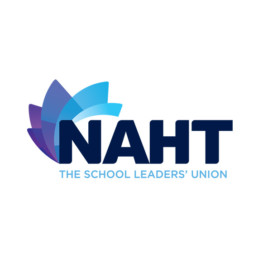
Written by NAHT
NAHT is the UK’s largest professional association for school leaders, representing more than 33,000 head teachers, executive heads, CEOs, deputy and assistant heads, vice principals and school business leaders.
At the end of June 2021, NAHT launched our ‘You Are Not Alone: Leaders for Race Equality’ book.
Originating from NAHT’s Leaders for Race Equality network, the book shares the personal experiences of 14 NAHT members from Asian, African, Caribbean and multiple backgrounds. It includes personal and challenging stories of the discrimination faced as both leaders and individuals through school, university, interviews and promotion, often having to prove themselves at every step on the way to leadership and facing both overt and covert racism from others. Common to many stories is the impact of the school environment and how vital the support and influence of role models can be.
The stories and experiences shared are powerful, challenging and at times deeply saddening. However, they are equally heartening, sharing examples of courage, determination and hope.
Mayleen Atima, a Head Teacher in Suffolk and book author
“All I ever wanted to be was a teacher” is the first line to my chapter. I wanted to start from a point of ambition. Even now that line is tinged with many memories for me as the path to teaching was not as romantic as I imagined it would be.
The below extract was the hardest part to write as I had to delve back into the emotions of that period of time.
“I realised at that point that, within that school, I had come to the end of my career progression, and I attended a deputy head teacher training course. I applied for several jobs and finally got an interview. The head teacher was shocked when he heard that I had an interview. He asked me for my personal statement so that he could write the reference. After reading the personal statement, he stated that it was full of grammatical errors and I should have let him read it before applying for the job. I was annoyed and my confidence was knocked. Deep down I knew that he did not want me to go, but still his words and actions hurt”.
I want all readers to find confidence in knowing their value and worth. Not waiting for someone to echo your value but knowing your own worth. The extract above pin-points a pivotal point for me when I realised my worth and knew it was time to move on.
I am now an established head teacher in Suffolk, running a school that has improved from ‘requires improvement’ to ‘good’. All I ever wanted to be was a teacher and I have achieved that goal.”
Ruhaina Alford-Rahim, Executive Head Teacher in Devon and book author
I had never considered racism as an issue that affected me, yet in writing my chapter, I recognised that racism my parents had suffered decades ago had shaped me to be a person afraid to expose my difference. Suppressed memories of micro-aggressions I had witnessed through 20 plus years in education surfaced: colleagues mocking children’s names; comments regarding needing to be careful when interviewing a non-white candidate; a senior leader revealing that he would like to leave London to get his children away from its diversity; a colleague saying that the Indian sweets a teaching assistant had brought in would taste like sweet wall paper paste and the aggression I received from parents when I first started teaching – at that time my surname was ‘Rahim’ and I wore a hijab.
Writing the chapter has helped me realise that by hiding my difference I am assuming everyone will react negatively and so I am doing them a disservice – not allowing the opportunity for others to learn, ask questions and develop their own understanding of cultures.
Diana Ohene-Darko, Assistant Head Teacher in Harrow and book author
It is my hope that those who read the book take the time needed to immerse themselves in our stories, to spend time with us, walking in our shoes if only for a moment. And to take-away the need to create safe spaces, open up discussion and make everyone feel that they are a person, that they belong where they are. No matter what school you are in, you belong there.
Equality is everybody’s responsibility. It requires commitment. It requires hard work. It requires personal reflection from the offset. In order for the whole of the education profession to be an ally, to become allies, you have to delve into that personal reflection, you have to delve into your own biases (and we all have them in different respects). In terms of equality being everybody’s responsibility, actually we are protecting each other’s ‘protected characteristics’, those characteristics that are protected by law- that is all of our joint responsibility.
Next Steps
NAHT hope that this book can play a part in igniting further conversation and awareness around the breadth and depth of discrimination within the sector. We know that the profession is not yet representative of the communities we serve, and that this is a particular issue at senior leadership level. NAHT are therefore proud to lend its support to amplify our Black, Asian and minority ethnic members’ authentic voices.
NAHT also recognises the need to challenge ourselves – we know that as an organisation we have really only just begun on our own journey and we remain committed to using our power to work to actively help dismantle racism and the structures that perpetuate it, in all of its forms.
The book is freely available to download at https://www.naht.org.uk/NAHT-Edge/ArtMID/694/ArticleID/1018/You-are-Not-Alone-Leaders-for-Race-Equality
If you are interested in hearing more about the book then please contact policy@naht.org.uk
Racist Language within an SEMH Context
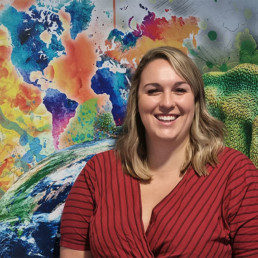
Written by Sophie Tales
Associate Assistant Principal for the Mead Educational Trust in Leicester. Sophie leads on Social, Emotional Mental Health, SEND Support and Development, Transition, Oracy, Team Teach and is chair for SENCo and Family Support Worker Networks.
What does it mean when students with SEMH show prejudice within a state of crisis? How can this be managed? How should this be tackled?
Within an SEMH context there are high staff to student ratios. Therefore, in the best of settings, there is very little behavior that goes unnoticed. This means that as staff you have a very insightful position within the lives of the SEMH students that are in your care and, therefore, have an opportunity to support students within any ounce of behavior that has been shown; positive or negative.
When it comes to times of crisis for students with SEMH, this can manifest in different ways. Behaviour that can be shown as an SEMH student reaches crisis: verbal abuse, physical abuse, controlling behavior, damage of property or self-harm.
Verbal abuse can often be part of an individual student’s behavior when they are in or reaching crisis. When an SEMH student is in crisis they are in ‘Fight, Flight. Freeze.’ Fight and flight are often seen within SEMH contexts. Verbal abuse is part of the ‘Fight’. Typically abuse that I personally get is “fat”, “bitch”, “slag”, “slut”; all very much to do with my body and being female. Within this state of crisis an SEMH student is in such a state of unrest that they are attempting to show you just how badly they are feeling; sometimes they want you to feel just as badly as they do – hence the abuse. What I, as a white woman, haven’t experienced is any abuse about the colour of my skin. However, what I wish to discuss within this piece of writing is that when working with students with SEMH, racist language may well be used as abuse towards anyone; regardless of the colour of their skin.
As with any SEMH context, the behavior policy of that setting is a fundamental part of the running of the school and provides a clear set of rules, as well as opportunities, for students to follow to be rewarded for positive behavior. Racism is a key part of the policy which outlines steps of action if a student shows racial prejudice. However, what I would argue is that all contexts, SEMH or not, alongside their behavior policy, equally need a defined focus within the setting’s curriculum where ‘racism’ is being taught; for SEMH students, especially those who are white, racism is a very hard concept to understand.
The importance of having a differentiated curriculum designed to discuss what race and racism is became increasingly apparent to me when dealing with a group of white students who were increasingly using racist language towards members of staff when they were reaching a state of crisis. It became increasingly apparent that this needed an individual approach as no form of sanction was helping them change their behavior. For instance, these students all hated working away from their main class group and this was the first part of the sanction for the racist words that they had used. In the past, working away from their main class group would help these particular students to understand what they had done wrong and to stop any repeat offenses. However, with this incident, it didn’t. The words these students were using became worse and, strangely, the targets of these racist words became more varied. These students started to use these words towards anyone who was around at their point of crisis. They were not directing these racist words towards any particular skin colour; they were saying them to anyone available – white or black. This change in word direction helped me to see the issue. These students were not showing their prejudice; they were using words that they knew offended and upset people, without having any real understanding of what they were talking about.
This is where I realised I had overlooked something. I had overlooked just how complex a social construct such as racism is for any child, let alone a student with SEMH. To be able to understand racism, you are not just having to teach how historically people of colour have been treated as inferior to white people – you have to help teach the impact of community, culture, religion and, above all else, empathy. This is not an easy endeavor for students who struggle with social understanding. Yet, once this has been identified, you can identify what needs to be broken down for those students to understand the impact of their words and behavior.
For the students I was working with they needed context. They needed to understand what the words they were using meant to the staff they were saying it to. This could not come from me. A white woman telling them how it made another person feel wasn’t enough context; they needed to hear it from the person they had said it to. Secondly, they needed to see what this meant in context. They needed to see the community of people that they were directly offending when using those words. Finally, they needed to be in that community, to see those faces, and to discuss, in front of the community they were offending, when out of crisis, and to feel the weight of the language they had used.
The above approach worked. These students no longer use racist language within a state of crisis; it has been put back into a box that they know is not to be touched; regardless of the level of distress they are feeling. This is not to say that I think they will never use these words in a state of crisis again; they most likely will. But what they have now is a foundation of understanding that can be used to remind them of who they are not to use such language. Most importantly, it helped everyone involved to see that these students were not prejudiced. They were not targeting race; they were seeing a way of hurting someone as a tool for communication, without an understanding of the historical and social weight of the words they were using.
Diversification - More Than an Educational Token
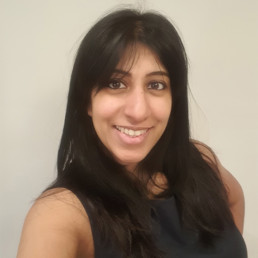
Written by Bhamika Bhudia
English teacher and lead teacher in a mixed comprehensive secondary school in North-West London. She tweets as MissMika_Eng
Diversity is a bit of a buzzword lately and a loaded one. Everywhere you look, it is in company policies, featured in plots of television shows and floating around our classrooms and curricula. However, despite its crucial need for focus and acknowledgement, the form we see of it is connoted with guilt, shaming and ultra-wokeness: the next big thing everyone needs to be talking about and be seen giving a nod to.
While terms like “diversity-hire” and “ticking boxes” are thrown around, what often goes amiss is the importance of representation and in more than just a tokenistic manner. Penguin recently published findings showing that, “Less than 1% of GCSE students in England study a book by a writer of colour, and only 7% study a book by a woman. This despite 34.4% of school age children identifying as Black, Asian and minority ethic.”
So many of our students do not see or hear themselves in the stories we tell them. So when “diversifying the curriculum” may be portrayed as the next big edu-fad, the damage of not doing this can last lifetimes. And with much of the media painting stereotypical and negative portrayals of anyone who is not white English, it is all the more damaging.
I am an Indian woman in my thirties; I spent my teens seeing most of the women from my genepool as submissive, perfectly poised opportunities for an arranged marriage plotline or a submissive daughter who just wanted some autonomy over her own life or career, should she have the audacity to want one. Who I am could not be further from this stereotype and having these very limited and hazy reflections of myself as a British-Indian woman, led me to experience conflict with a culture that I am in actual fact, incredibly proud of. But as much as this affected my youth and shaping of my identity, I can at least say that it has evolved. Archie Panjabi has gone from playing the daughter oppressed by her ethnic brand of patriarchy in the noughties to a no-nonsense, lawyer or motorcycle-riding, pathologist; Priyanka Chopra from a Miss-World-winning, exotic Bollywood beauty to a conflicted, sexually-empowered, complicated FBI agent; and of course, we have Malala and everything that she is and has done.
While I’m not for a second saying all of the issues with the representation of the Asian females have been fixed, I am acknowledging that progress has been made as it has with many other minorities and women in general. However, this is not the case across the board.
A classic example is the South-Asian male. Everywhere we see him, the Asian man is an awkward, socially inept, sexually-repressed individual whose role is no more than to drive a taxi, serve behind a shop counter or be the butt of jokes at a “funny accent” or his inability to communicate with women! The criminalisation of the black man still stands prominent over any suave and sophisticated depictions we have of him – and please can we take a real look at the dangerous and discriminatory portrayal of muslims on our silver screens?!
These one-dimensional and offensive reflections of the very students we teach will take heed on how they see themselves. They are essentially telling whole demographics that they are sexually undesirable, expected to show no confidence and be laughed at; or mistrusted, feared and hated. And they will all lead to one of three things: abandonment or dilution of their own culture; appropriation of another culture or the complete marginalization of groups of people from the British values we are told to uphold professionally, as part of our teacher standards!
How we see ourselves in the world around us is important so while western society and the wider media may be failing, we as teachers have the opportunities to tell our kids that they are not invisible, they are real and they are important. So the next time you feel the term “diversification of the curriculum” is being treated as the next temporary fixture as so many things in education are, think about the stories that may be told about the kids in your classroom and the power they can have. We have the opportunity to change the narrative and give our kids a voice that truly resonates with them – an opportunity that should not be missed!
Why MeToo Matters in International Schools
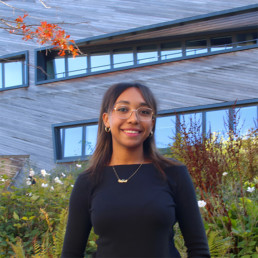
Written by Charlotte Rodney
As an undergraduate student currently pursuing my law degree at Durham University, I am an advocate passionate about Human Rights, hoping to propel into a career at the Bar. Public speaking, debating, and writing have always been passions of mine, placing conversation at the forefront of my passions. With a willingness to better understand intersectionality that is necessary but often lacking in educational institutions, I continue to pursue ventures that raise awareness on the topic of racial injustice. Writing for Durham's student publication, Palatinate, and immersing myself further into the legal field as a Durham University Women in Law Mentor, as well as being a mentee of a leading Professional Negligence barrister myself, I hope to always remain immersed in academic and working practicing fields.
Whether it be #metoo, #97percent, or even Sexual Assault Awareness Month, discussions about the female experience with assault and harassment have never been free from the demeaning scrutiny so forcefully placed on us by our male counterparts.
As an active feminist, I find myself liberated when initiating discussions about women’s rights, internalised misogyny, sexual assault, and much more. Having these discussions is never the issue. What is an increasing concern is how this is received by a lot of boys and men. Time and time again, we see them immediately become defensive, adamantly insisting that these issues have nothing to do with them, and often witnessing them taking away from our experience by imposing stories of their own – arguably very different – struggles.
In response to a recent surge in sexual assault awareness following Sarah Everard’s murder, the #notallmen campaign was started. Even though there are masses of credible statistics to be cited, including the recent United Nations publication which indicated that 97% of women in the UK, aged 18-24 have experienced some sort of sexual assault, men insist that it has nothing to do with them.
Sure, not all men, but enough men, and nearly all women.
Unfortunately, the education system is not innocent. It still has a lot to answer for regarding the often toxic environment that is created in schools, resulting in young girls who are indoctrinated with ideas of repression. Now, that may sound extremely dystopian, but it’s the reality for schoolgirls all over the world including myself. As a 17-year-old, close to finishing my schooling career, I have often found myself in situations where I invalidated my own feelings in order to appeal to the male authority figure. It begins with snide comments from male classmates, escalates to abuse of power from male staff members in order to impose their threatening views, and yet, it only ever seems to be addressed in a manner that results in eventual suppression of the female voice. In turn of progressive discussions being encouraged, we are told not to talk about such “subjective matters”. Instead of our experiences with harassment being listened to, we are silenced and told to “park it and move on” and “move on”. When all we really want is to be acknowledged and approached on how men can do their part to make the world more comfortable for us, we are argued with and told to prove that there truly is a systemic bias against us.
Schools are intended to be a nurturing environment in which students leave with formulated opinions, often influenced by the system. Thus, a considered approach needs to be implemented when addressing the reality of being a woman, and it starts with young female voices at the frontline. Girls need to be encouraged to speak up, supported by an environment that makes them feel safe to do so. Boys need to be taught how to approach such situations, with consideration, validation and knowledge. And the adults in positions of responsibility must mediate with comprehension and consideration; allowing personal viewpoints to be safely shared with the sole intent of educating.
I have grown up in a world that has engineered a system, teaching girls from a young age that their voice doesn’t matter. Having had an interest in leadership roles ever since I was young, I have not been free from the titles of ‘bossy’ or ‘too big for your boots’, reinforcing this idea that, as a girl, I couldn’t take on high-power roles without their being a negative connotation to it. Yet my male classmates could pursue any role they saw fit without so much as a second glance from those around.
The patriarchal lens in which the world views women put us under so much more scrutiny than our male counterparts. Unfortunately, this has created a toxic amount of competition which has turned women against each other. Having your gender be an identifying factor that frequently puts you at risk will never be the struggle of men. It’s time that we take the immensely progressive attitudes of the 21st century and use the surplus of information in the most productive way possible. Social media may be one of our greatest allies, providing a platform for avid discussion and spreading awareness. There is often a misconception that this abundance of information equates immediately to progress. While this isn’t the case, we are still at an advantageous point of being able to use our shared experiences for change. And I believe that is exactly what we need to do.
Five Steps For Starting A School Pride

Written by Edel Cronin
Secondary school senior leader and co founder of Bristol Queer Educators, very Queer and very Irish.
Yesterday my school held its first in-person Pride. The saying of – you can’t be it unless you can see it – very much worked in the reverse for me as I walked into our student Pride lunch club. The room was awash with students celebrating Pride in a rainbow of flags, cakes and community. I never consciously knew what I wasn’t ‘seeing’ during my teenage years but something about walking into a classroom full of Pride colour made me reflect on how my life may have been different had this experience happened in my school. No one was ‘risk assessing’ if it was safe to wear a flag or in some cases a crown! Everyone was fully embracing having a space to loudly celebrate themselves.
Creating a whole school event has not been high on the agenda of most school leaders in the last year and half. I think we have all had 1 or 2 other things taking up our time. However, I would argue that it is in a pandemic where the school year has been full of uncertainty, and at times isolation, we need events like Pride more than ever. Pride gives us an opportunity to remind ourselves and others that our sexuality or gender is something to celebrate.
- Ask for help – Our school’s first Pride took place in June 2020. I sent an email out to staff asking if anyone was interested in organising a virtual school Pride. Five or six staff volunteered, we set up a Teams’ call and got started. We chose to focus on 1 week, took a day each and made tutor resources for that day. You don’t have to do everything from scratch – lots of organisations have free resources and doing even one thing in your school for the first time will make a positive impact on the lives of LGBTQ+ students and staff.
- Make it intersectional – Each member of staff made a resource based on their own area of interest. The only expectation we agreed on was that all resources had to be intersectional. If all your resources are white, able-bodied people from the LG bit of LGBTQIA+ spend some time educating yourself and diversify your resources using organisations like Just Like Us. Your students and staff may fall into one ‘category’ but LGBTQ+ people do not.
- Ask for student input/feedback – If your in a position to ask for student in put in advance fantastic, if not don’t worry. For my initial attempt at school Pride I wasn’t, so instead we did what we would have wanted as students and asked for students feedback to help us plan for future events. Those who fed back also created the base of our student group for the following academic year and led to a whole school LGBT+ History Month the following February.
- Choose an ‘action’ for the month – Pride is celebration, it is also a chance for us to ensure the futures of LGBTQ+ people are less discriminatory. What would your school benefit from in Pride month but also every other month of the year? It could be putting a Pride flag up and keeping it up 24/7 or changing your behaviour policy. Depending on your setting one of these might be more achievable than the other. It is also important to consider student and staff feedback when deciding on your action.
- Share – Share what you’ve done. Many LGBTQ+ educators are the only LGBTQ+ educators in their school. A sense of community is not just important for our students but also ourselves.
Keep Chipping Away at Homophobia
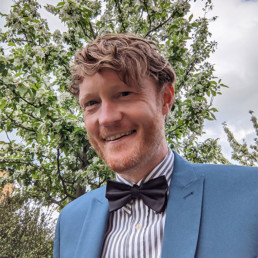
Written by David Lowbridge-Ellis
Leader of school improvement for Matrix Academy Trust in the West Midlands. In addition to writing extensively on equality and diversity he has been published widely on topics ranging from curriculum and assessment to workload and well-being.
You can’t be what you can’t see. It’s a phrase bordering on cliché. But just because something is clichéd that doesn’t make it any less true. It rings so true that, at this point, we should probably consider it conventional wisdom. And sometimes, it just takes a glimpse to start making change happen.
Friday night after a long week: my husband and I are on the sofa, watching a football match – of all things!
Now I don’t want to indulge in gay stereotypes but I’m not very into football. My husband is more keen, especially when it comes to an international competition. When the World Cup’s on, he goes gaga for it. It’s the whole ‘world coming together in harmony’ part that gets him going. He’ll also watch any match that Gerard Piqué happens to be playing in. My husband claims he’s a fan of Piqué by proxy: the Spanish footballer is married to Shakira, whose music my husband enjoys. But I know the truth.
Anyway…
The match we were watching was the England vs. Scotland match of the Euro 2020 (sic) competition. A pretty unremarkable feat of football as it turned out, with a 0-0 final score. What was arguably more significant was an advert from Nike played in the break. Calling it an advert is an understatement, although that was its purpose. The short film, entitled The Land of New Football, was a vision of how football could be. Starring Free School Meals-champion Marcus Rashford it might have been considered by some to be utopian, but nothing was outside the realm of possibility. It finishes with the ‘UK’s first hijab wearing referee’, a real person. And 20 seconds in it featured a gay footballer (Josh Day, of London Titans FC) celebrating a victory by kissing his partner on the pitch.
Let’s just pause (like I did, rewinding the brief footage seven times) and drink that in: millions of people just saw a gay footballer kissing his partner. There was no cutaway at the last minute. This wasn’t queer-baiting; we got the setup and the payoff. Yes, it only lasted a few seconds, but it was still around 400% longer than the lesbian kiss in the last Star Wars movie which was much heralded but was, ultimately, a crushing disappointment.
I know there are arguments that corporations are just jumping on the Pride bandwagon now it’s a commercially advantageous option. I get as frustrated at anyone about companies seeking out rainbow pounds/dollars/Euros without giving anything back to the LGBTQ+ community. But Nike has a better track record than most. Back in 2013, Nike actively sought gay athletes to be front and centre in their latest campaign. A little known fact is they also finance the queer-friendly animation studio Laika, famous for stop-motion movies Coraline, Paranorman and Kubo & The Two Strings (the studio head is the son of Nike’s co-founder).
One advert, no matter how well shot and well edited and well intended, is not going to change the world by itself. But things like this do chip away at the homophobia that sometimes seems like an immovable monolith, an ugly slab of uncut stone blocking out all the light, preventing mutual understanding from taking root.
When homophobia feels like this – and in my experience, it feels like this a lot of the time – we can get discouraged. We start to feel that it is an intractable problem: no matter what we do, we are just not going to shift it. But what I’ve learned over the years is this: anything you do, even if it’s chipping away, is enough to start something.
I’m reliably informed (thanks Wikipedia) that ‘chipping’ is also a term used in football for getting the ball where it needs to go by skilfully applying less than the usual force to the underside of the ball so it goes over opponents’ heads. Apparently, Lionel Messi (another of my husband’s reasons to watch certain matches) is very good at this.
A footballer chipping in a ball is, of course, very different to someone trying to shift a big rock by hacking away tiny bits of it. It’s closer to a skilful sculptor chipping away carefully at a mass of marble. Less force; more impact. It highlights to me that while more forceful approaches to tackling the problem of homophobia are sometimes required, they aren’t the only options. Sometimes, something more subtle can be effective.
It may ‘just’ be an assembly; it may ‘just’ be a PSHE lesson; it may ‘just’ be an interaction in a corridor with a pupil who is putting more effort into disguising their true selves than their school work.
But…
It may ‘just’ be enough to change that pupil’s life; it may ‘just’ be enough to change the outlook of several members of a class; it may ‘just’ sow the seed of something which will grow as children move through our schools, flowering into something approaching – or exceeding – mutual understanding.
It’s well known that there are several gay players in the Premier League. What did they feel when they saw that Nike film played during halftime? Did they look at it with shame, retreating further back into the closet? Did they look at it with envy, wishing that they could be that jubilant player on the screen, unafraid to celebrate in front of spectators with his significant other? Did they look at it with pride, knowing that they were represented?
Who knows how long it will take for a player in the Premier League to come out as gay. But when it does happen (and it will) I doubt they will be able to point to just one thing that led them to decide enough was enough and led them to take that very brave step. It will be the cumulative result of them chipping away at their own internal monoliths over several years, wearing away their fear about what others will think about them; whether they will still get sponsorship deals; if their dream career will turn its back on them.
When we ask our pupils about their dream careers, we may sometimes have to resist rolling our eyes. You want to earn a living as a footballer, riiiiiight. As it happens, I have taught several pupils who have made it as top-flight footballers, so I know it is possible. I would never have wanted any of those to see who they are as an impediment to pursuing those dreams.
Similarly, I would never want the critical mass of pupils who follow football to grow up thinking there is no place in the national sport for queer people. Or, for that matter, any occupational field. And that includes teaching.
I’ve been out as gay for over a decade and I never bother to hide this part of myself in front of my pupils. I find it startling to remember that I was the first out teacher at the school I currently spend most of my time in. I’m far from the only queer teacher at my school currently. I’d go so far to say we are well above national average as far as proportion of queer teachers goes. And the same goes across our multi-academy trust. I would never claim sole credit for this but we have trained queer people to be teachers who were former pupils of mine. And several of them have told me that knowing I was gay meant they didn’t close down the possibility of being a teacher themselves.
Football and education may not seem especially comparable (and I’m far more qualified to comment on the latter than the former), but they’re both fields where homosexuality has been less tolerated than in other social spheres. On most football pitches and school playing fields we’re still far away from having the differences in who we love being universally celebrated. And, yes, I do get VERY frustrated at the agonisingly slow pace of change! But I calm myself by recalling that even little things can have a big impact over time. Let’s keep chipping away.

